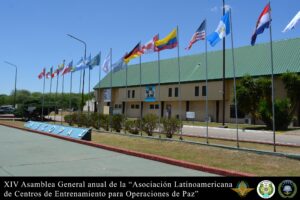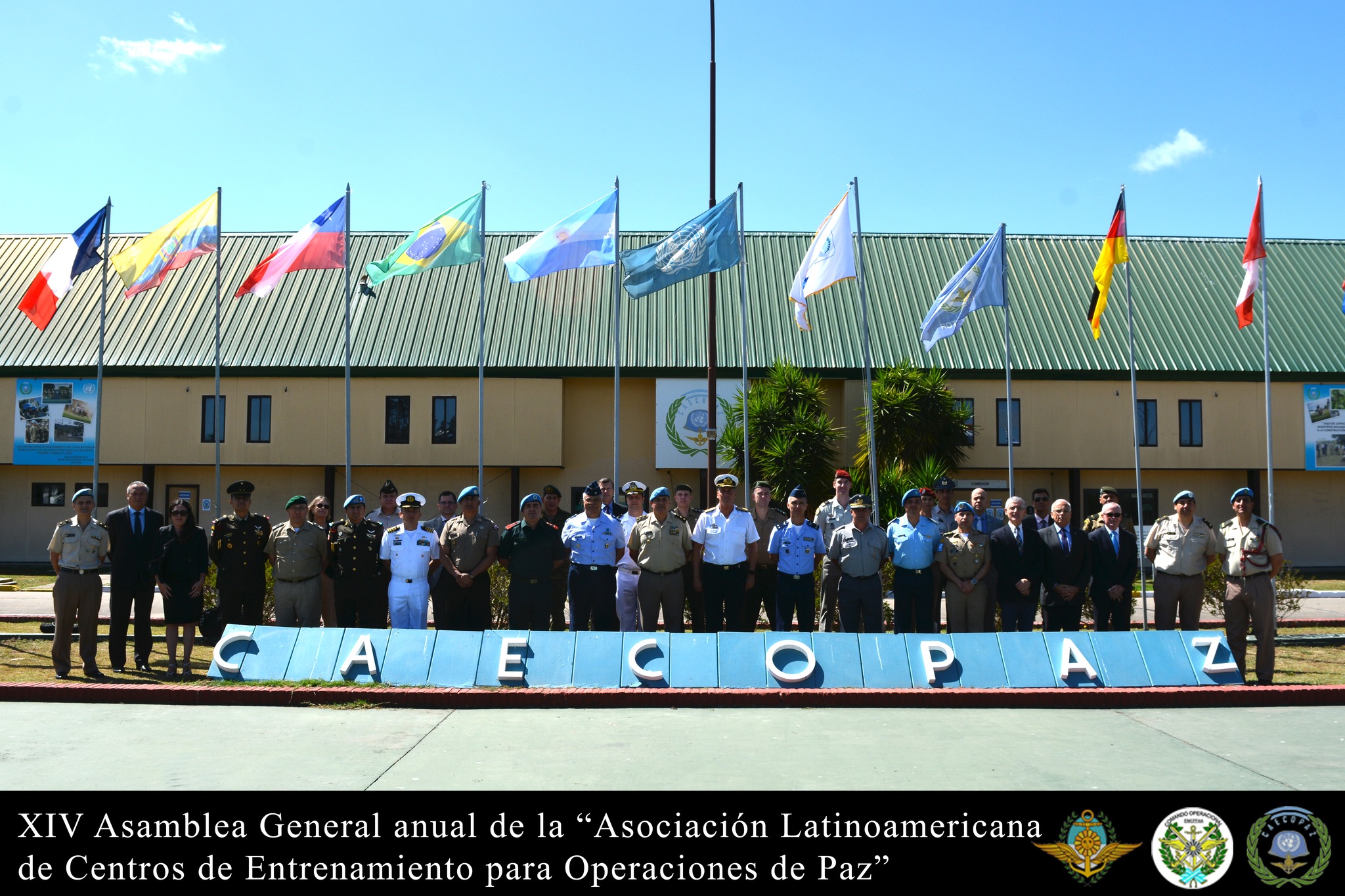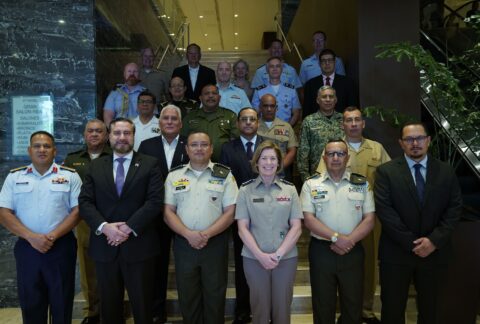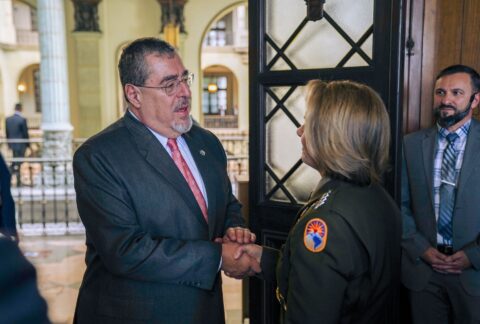Members of the Latin American Association of Training Centers for Peacekeeping Operations (ALCOPAZ) gathered in Buenos Aires, Argentina, for the 14th Plenary Meeting of the General Assembly. ALCOPAZ was founded in 2008, with more than 20 countries representing regional training centers for peacekeeping missions, under the coordination of the United Nations (U.N.).
Argentina, Bolivia, Brazil, Chile, Colombia, Ecuador, Guatemala, Mexico, Paraguay, Peru, and Uruguay attended the meeting. Also present were representatives from observer countries, such as Lieutenant Colonel Karl Wolfgang Wieser, from the German Armed Forces’ U.N. Training Center, and Paul Yorio, operations analyst at U.S. Southern Command.

The meeting took place at the Argentine Joint Training Center for Peacekeeping Operations (CAECOPAZ), located at the Campo de Mayo Military Garrison, November 22-25, 2022. The topic of this meeting was Managing the Environment in Complex Peacekeeping Operations. The objective was to understand how climate change affects security and peace in peacekeeping missions, identify climate-related security risks, and assess the scale of their impact, the Argentine Armed Forces’ Joint Chiefs of Staff said in a statement.
Argentina said that its CAECOPAZ promotes environmental management awareness and training to help reduce the impact on the environment. Brazil highlighted that this issue is very important for the country and for the armed forces in particular, and that its importance has increased since its participation in the United Nations Stabilization Mission in Haiti (MINUSTAH). Brazilian participants also highlighted that the Brazilian Army published the Brazilian Army Guidelines for Environmental Practices in International Organizations Missions, a manual that was offered to ALCOPAZ members.
Ecuador emphasized that in its specific courses for peacekeepers, one of the training is environmental protection, and also highlighted that a virtual guide is being implemented for these procedures, to be used by all troops to be deployed in peacekeeping operations. Uruguay, for its part, said that all troops and officers assigned to peacekeeping missions take its center’s courses, which include all the standards set by the U.N. for environmental management in peacekeeping missions.
“I am grateful and pleased to be here for two reasons. The first is the gathering of people linked to the topic of peacekeeping training, who can once again work together face-to-face. The second is Argentina’s initiative to start a joint distance training tool on a very interesting and contemporary subject, which is caring for the environment and the positive effects that our peacekeeping operations can have where we carry out our missions,” said Colonel Roberto Gil de Vargas, from the Training Center of the International Association of Blue Berets of Uruguay (IAPTC), in a statement to Argentine radio station Cascos Azules.
“It’s an honor to take part in this meeting here at CAECOPAZ in Campo de Mayo, Buenos Aires, Argentina. We have participated in this type of event throughout the years, starting in 2008, and each year we see that these meetings are extremely important for us in the J5 [Strategy, Policy, and Plans] Directorate of U.S. Southern Command, specifically in our program, the Global Peace Operations Initiative, where we support countries like Argentina that are going to be deployed or are deployed in peacekeeping operations — like Argentina in Cyprus — and the other members of ALCOPAZ in various other missions. In our program there are three areas of concentration: The first is the purchase of materials and equipment for the units that are being deployed in peacekeeping missions; the second area is the training and capacity building that we do through the organization that is called ALCOPAZ, which is the purpose of my visit here today; and the third area is in the peacekeeping operations schools in each country, like here in CAECOPAZ,” Yorio told Cascos Azules.
At the end of the event, Brazil assumed the presidency of ALCOPAZ for the next two years, defining Brasilia, the country’s capital, as the host of the 15th Plenary Meeting of the General Assembly in 2023.









